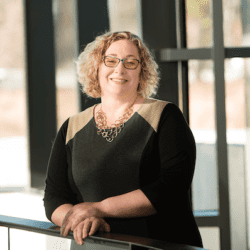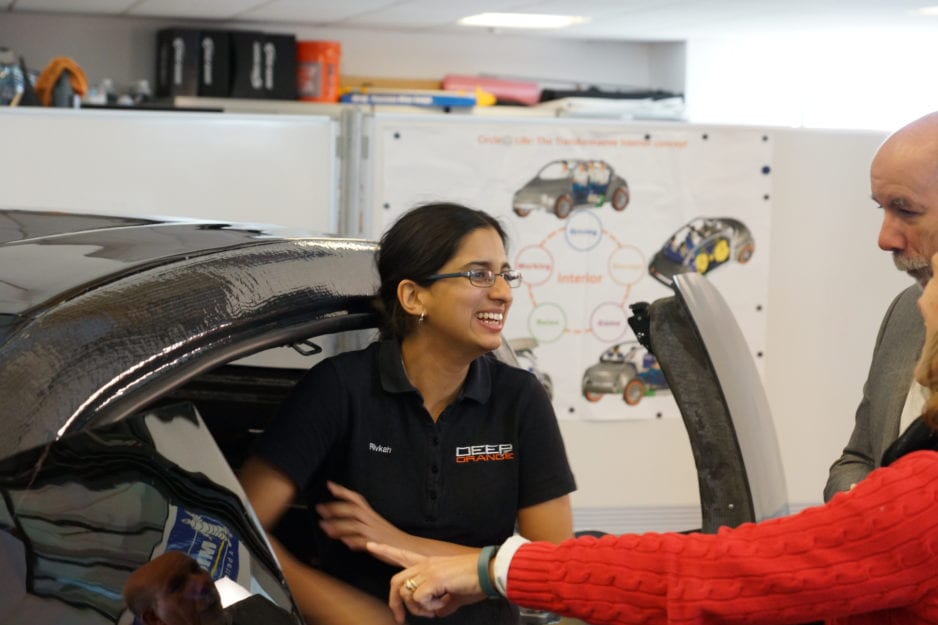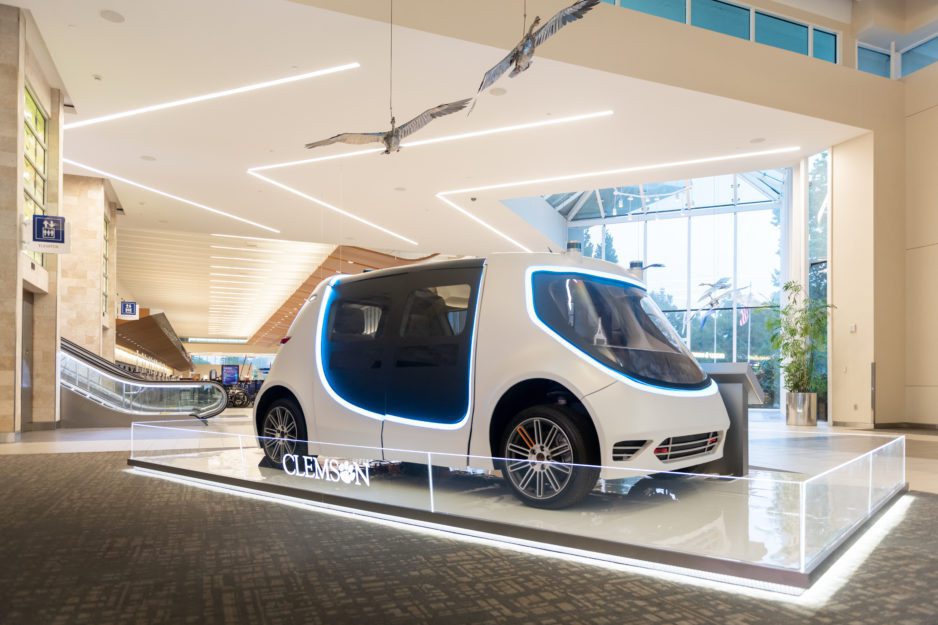At A Glance
Vehicle design is more than engines, electronics and aesthetics — it’s also about crafting the interaction among drivers, passengers, vehicles and environments for safer, accessible and enjoyable travel. As a seasoned human factors psychologist with more than 100 IP disclosures, Brooks’s research focuses on designing vehicles and transportation systems with the human experience in mind. Thanks to her work, Clemson’s Department of Automotive Engineering is one of the only departments of its kind with a psychologist on faculty.
Bio
To put customers at the center of vehicle design, engineers need to understand both driver and passenger capabilities and limitations. Johnell Brooks is an expert in automotive human factors, clinical driving simulator development and UX in novel vehicle contexts. She leads an interdisciplinary research team within Clemson’s Department of Automotive Engineering that develops tools to empower aging drivers, wounded warriors and young adults with autism to maximize their independence through mobility. Her work can be found in clinics, hospital settings, prototype concept vehicles and on test tracks. Thanks to her work, the Department of Automotive Engineering is one of the only departments of its kind with a psychologist on faculty.
Her most recent work focuses on the potential benefits of ride-sharing with at-risk populations, enhancing workforces by helping clinicians understand autonomy and how to encourage the adoption of new transportation methods. Another project focuses specifically on understanding major influences on user adoption and comfort in alternative forms of transportation. These projects aim to develop technologies to improve both user acceptance of pooled ride-sharing and increased transportation system energy efficiency in the process.
Collaborating with DriveSafety Inc., Brooks developed three of the first rehabilitation tools using driving simulators to improve the quality of life of patients with motor, visual and cognitive impairments. These clinical driving simulators have been used by thousands of patients in more than 100 locations worldwide. Her tools can be found in civilian hospitals, clinics, medical device companies, schools, occupational therapy programs and U.S. Department of Defense and Veterans Affairs hospitals.
As a long-time adviser and faculty lead for Clemson’s groundbreaking vehicle engineering program, Deep Orange, Brooks ensures the concept cars reflect the wants and needs of their target users.
Her leadership can be seen in the design and implementation of one of the first digital cockpits in a prototype car, a novel double-hinged door design to improve access for individuals who use wheelchairs
and origami-inspired space-saving vehicle storage. With each iteration, her work advances driver interfaces and aids, from a 3D holographic digital concierge to an intuitive safety-enhancing parking assistance system.
As a translator between end users, designers and engineers, Brooks divides her time between clinics, military sites, labs and classrooms. She is frequently found at the BMW Performance Driving Center, where she volunteers with the Guard Your Life Challenge teen driver safety program and other driving events.
Quotes
One of the most significant factors for quality living is accessible transportation. If you don’t have the ability to drive or access to transportation, your health and quality of life suffer. You have more doctors’ appointments, fewer benefits of social interaction and your overall quality of life is worse. Even in cases of individuals with high-functioning autism, we see story after story of people who are OK as long as they have a job they can walk to. We do more than help individuals achieve independence through transportation — we transform lives.




